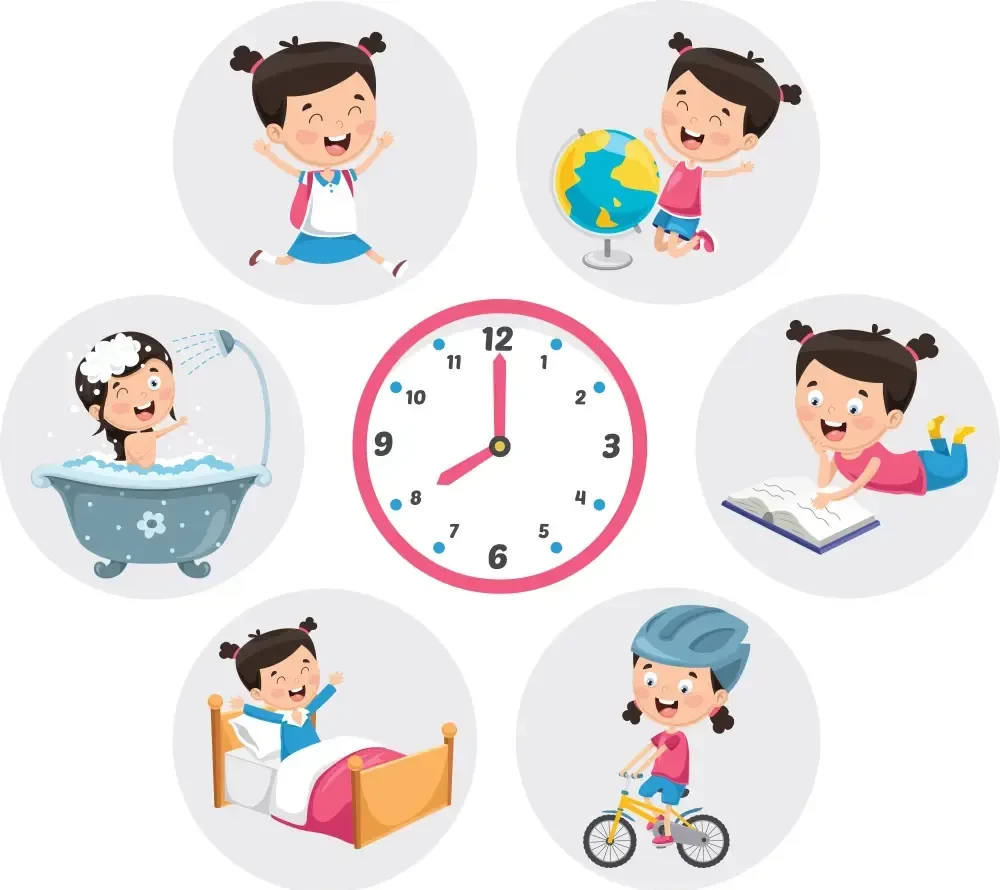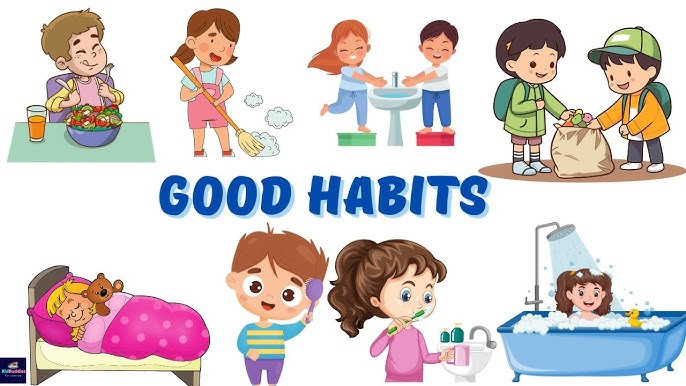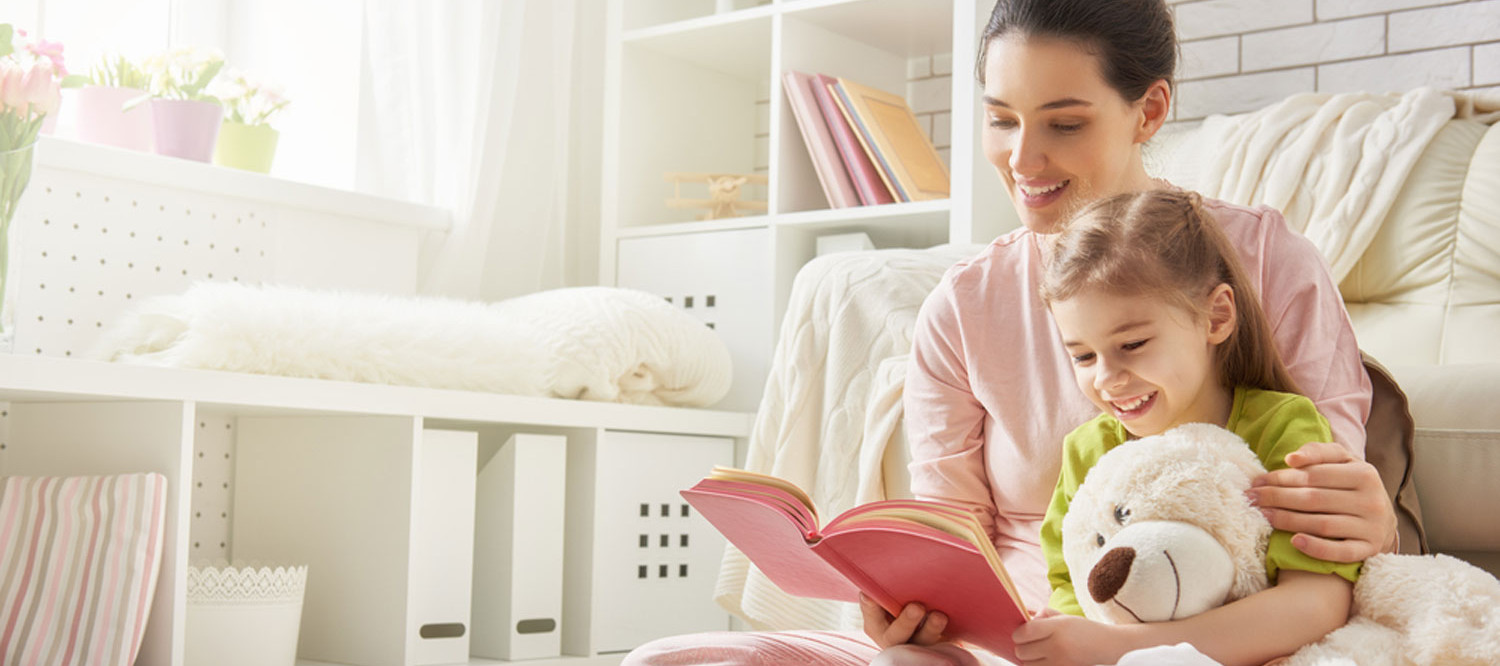Sub total: 0.00 BGN (0.00 €)
Building a healthy routine is one of the most valuable foundations parents can provide for their children. In the early years, little ones develop habits that shape not only their daily lives but also their emotional, social, and cognitive growth. The lack of structure often leads to chaos, stress, and unpredictable behavior, while a clear routine creates a sense of security and balance.
In the following lines, we will explore why routine for children is so important, what it teaches, what skills it develops, and how parents can introduce it through play and patience.
Why is routine essential?
Predictability brings peace. For a child, the world is full of new stimuli that can be overwhelming. When there is a clear daily framework – time for meals, play, and sleep – the child knows what to expect. This reduces anxiety and builds trust in their environment.
A healthy routine not only gives children security but also creates conditions for developing focus, patience, and emotional control. It reduces conflicts at home, eases transitions between different activities, and makes daily life calmer for everyone. Beyond being a stable foundation for the child’s emotional and psychological growth, routine also brings order and predictability for adults, helping them organize their day more easily and find time for quality moments together.

What does daily routine teach?
Routine is an invisible teacher that delivers valuable lessons every day. It develops independence – the child realizes they can perform actions without constant adult intervention. It also builds a sense of responsibility: small rituals like tidying up toys, making the bed, or brushing teeth before bedtime teach that actions have sequence and consequences.
Daily structure creates discipline, not as a rigid frame but as a natural understanding that life has its rhythm and order. When this rhythm is learned early, children find it easier to follow rules and complete tasks at school and beyond.
What skills do children’s habits develop?
Forming children’s habits is a process that leads to the development of key skills. Every repeated action carries hidden value:
- Fine motor skills – fastening, tying, and turning train coordination and prepare the child for more complex tasks like writing or drawing.
- Focus and patience – repeating certain actions builds the ability to concentrate and to finish what has been started.
- Social skills – when the child gets used to rules and sequence, they adapt more easily to group situations and interactions with others.
- Emotional stability – clear structure reduces tantrums and insecurity, helping the child handle new challenges with more calm and confidence.
- Independence – even seemingly small things, like dressing and eating by themselves, are lessons in autonomy and confidence-building.
How to introduce routine without resistance?
Many parents fear that routine may be perceived as boring or too strict. In reality, it can be introduced gradually and even in a fun way for children. The key lies in small steps.
- Start with one simple ritual – for example, tidying up toys after playtime and brushing teeth.
- Turn habits into play – with songs, rhymes, or small competitions.
- Offer choices – let the child pick which pajamas to wear or which book to read before bed.
- Stay consistent – routine is built through repetition, but without unnecessary severity.
- Encourage successes – every bit of praise, even for the smallest step, strengthens confidence and fuels the child’s motivation to keep going.

The role of toys in building a healthy routine
Toys are far from just a source of fun. They can also be a valuable tool for developing sustainable habits. With well-chosen games and toys, children associate joy with learning, and daily rituals become a natural part of play.
- Busy board – its variety of mechanisms teaches fastening, tying, and turning. These are actions children transfer directly into everyday life, such as dressing, putting on shoes, or tidying up.
- Balance board – supports movement and coordination, encouraging healthy physical activity. Including it in the daily routine helps children expend energy and concentrate more easily.
- Building blocks and construction sets – encourage logical thinking and sequence, teaching children to finish what they start.
- Puzzles – develop patience, focus, and the ability to follow sequence, which is directly linked to building routine.
- Musical instruments for children – can become part of a daily ritual, enhancing hearing and sense of rhythm.
Play is the most natural way children learn. When combined with rituals, it transforms daily habits into joyful and meaningful experiences.
Drawbacks of lacking routine
When there is no clear structure, the consequences show quickly. Children become more irritable, struggle to concentrate, and often act chaotically. The lack of routine is also linked to bigger problems: restless sleep, tantrums, and difficulties in school. This doesn’t mean every moment of the day must be strictly scheduled and devoid of spontaneity. What’s needed is a basic consistency that creates stability and supports the child’s harmonious development.
Routine as a foundation for future success
The small habits formed in childhood often shape the direction of life. A child taught to tidy up, follow rituals, and respect time adapts more easily to school and social environments later on. A clear healthy routine is the invisible foundation on which independence, confidence, and success stand.
Routine for children is not a restriction but an opportunity – it turns chaos into order and prepares the child for life’s future challenges.




